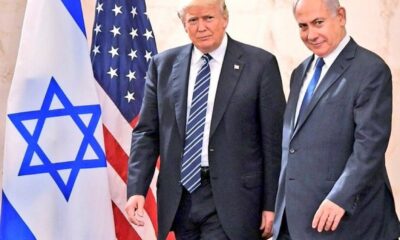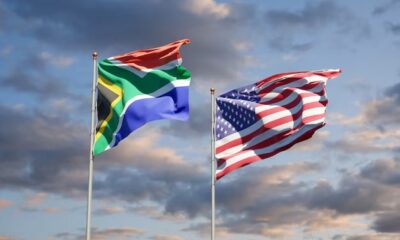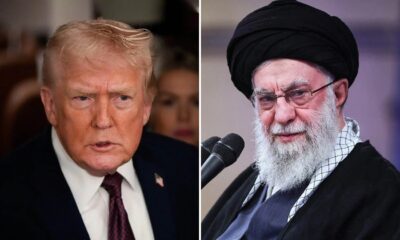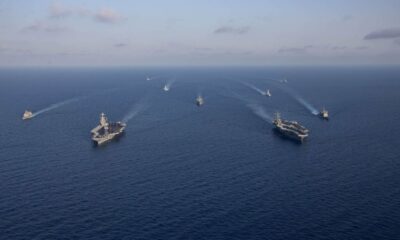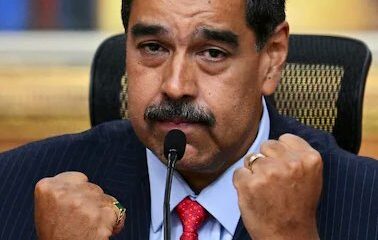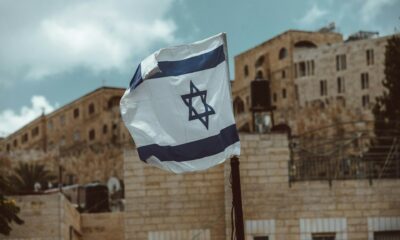News
South Africa Caught in the Crossfire of Iran-Israel Crisis
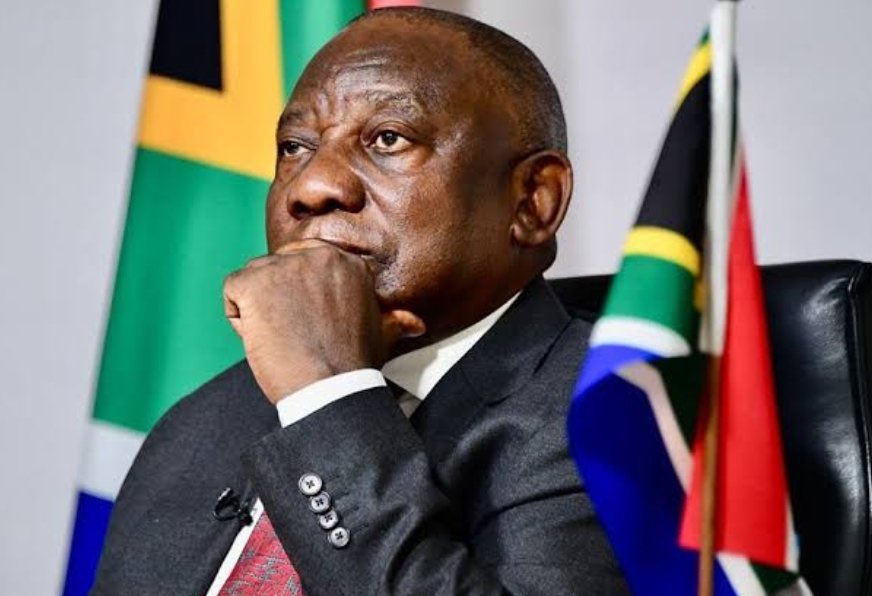
Ramaphosa calls for calm as tensions flare, but can SA walk the diplomatic tightrope between Iran, Israel, and the US?
President Cyril Ramaphosa’s recent call for peaceful dialogue in the Middle East may sound like diplomacy-as-usual, but behind his carefully chosen words lies one of South Africa’s trickiest foreign policy moments in years.
As missiles fly between Iran and Israel, and the US ramps up its military involvement, South Africa finds itself wedged between global giants, trying to maintain long-standing relationships with both Iran, its fellow BRICS partner and the United States, its biggest trade partner outside of Africa.
A Message to Trump: Choose Dialogue
Ramaphosa’s statement, released on Sunday following reports of US strikes on Iranian nuclear facilities, was direct in tone but cautious in diplomacy.
“It was South Africa’s sincerest hope that President Donald Trump would use his influence… to prevail on the parties to pursue a dialogue path in resolving their issues,” the statement read.
It marked Pretoria’s strongest response yet since the Iran-Israel conflict erupted into open warfare nearly two weeks ago. The statement added that the United Nations should be allowed to lead efforts to verify Iran’s nuclear enrichment status and defuse tensions.
Caught Between Allies and Ideals
For years, South Africa has walked a diplomatic tightrope in the Middle East:
-
It has warm bilateral relations with Iran, based on shared interests in the Global South and BRICS.
-
It has taken a hard stance on Israel, accusing it of apartheid and genocide in Gaza, even filing a landmark ICJ case this year.
-
But it also maintains key trade and investment ties with the US, and depends heavily on the West for economic support.
Political analyst Dr John Molepo says this balancing act has never been more difficult.
“Ramaphosa’s measured response reflects the complexity of it all. South Africa wants to be seen as a voice for peace and international law, but that becomes tough when two of your strategic partners are on opposing sides of a war,” he explains.
Criticism and Support at Home and Abroad
Reactions to the statement have been mixed:
-
Some civil society groups welcomed Ramaphosa’s diplomatic restraint, praising his focus on the UN’s role and multilateralism.
-
Others, particularly Palestine solidarity activists, were hoping for a more forceful condemnation of Israel and the US, in line with Pretoria’s recent diplomatic freeze with Tel Aviv.
-
In Washington, analysts noted Pretoria’s lack of outright condemnation of Iran, which could be viewed as soft-pedalling Tehran’s nuclear ambitions.
Meanwhile, some South Africans online were less diplomatic, with one X (Twitter) user writing:
“If SA wants to be neutral, it should focus on fixing electricity, not playing peacemaker in a nuclear chess match.”
What’s at Stake for SA?
South Africa’s foreign policy, especially in the Middle East, is closely watched, not just because of historical solidarity with Palestine, but also due to its positioning as a moral voice for the Global South.
But this crisis is different. The stakes are higher. The lines are blurrier.
If South Africa leans too far toward Iran, it risks alienating Washington. If it backs the US or Israel, it undermines its Global South leadership credentials.
For now, Ramaphosa seems committed to walking the middle line, but as the bombs fall and alliances harden, neutrality may become an unaffordable luxury.
South Africa is playing a high-stakes game of diplomatic balancing. Whether Ramaphosa’s calls for peace are heeded, or sidelined may shape not just the region’s future, but South Africa’s global role in an increasingly polarised world.
{Source: IOL}
Follow Joburg ETC on Facebook, Twitter , TikTok and Instagram
For more News in Johannesburg, visit joburgetc.com

